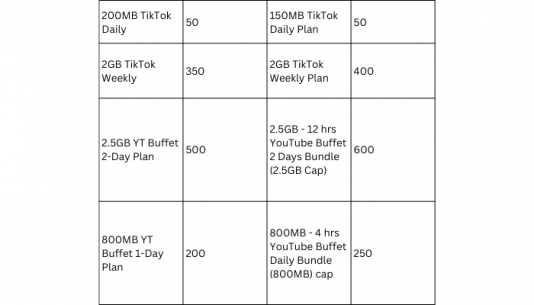MTN Nigeria has officially increased its data plan prices, a move that follows the Nigerian Communications Commission’s (NCC) approval of a 50% hike in telecom service costs. This marks the first significant tariff adjustment in over a decade and is expected to reshape how Nigerians access mobile data services. The price adjustment, which took effect immediately, has sparked reactions from subscribers, industry analysts, and consumer rights advocates who fear the rising cost of internet access will impact businesses, students, and the broader digital economy.
The increase is driven by the mounting operational costs that have strained Nigeria’s telecom industry in recent years. According to MTN, the new pricing structure is necessary to maintain service quality, expand network infrastructure, and keep pace with rising inflation, foreign exchange fluctuations, and increasing energy costs. The telecom sector, heavily reliant on diesel-powered base stations, has seen its expenses soar due to Nigeria’s energy crisis and currency devaluation, making price adjustments inevitable.
MTN subscribers now face higher charges for various data plans. The 15GB monthly plan, which previously cost ₦2,000, has now tripled to ₦6,000. The widely subscribed 100GB plan, which was previously priced at ₦20,000, has been revised to offer 90GB for ₦25,000. Long-term data users also face sharp increases, as the 600GB plan has jumped from ₦75,000 to ₦120,000, now offering 480GB instead. The high-capacity 1.5TB plan, typically used by businesses and heavy data consumers, has moved from ₦150,000 to ₦240,000. While some daily and weekly data plans have seen milder increases, the overall adjustment represents a significant shift in Nigeria’s mobile data pricing landscape.
Consumer reactions have been swift, with social media flooded with complaints over the affordability of data services. Many subscribers argue that the increase is excessive, especially at a time when Nigerians are already dealing with economic hardship. The Nigeria Labour Congress (NLC) has condemned the tariff hike, calling it “an anti-people policy” and vowing to stage nationwide protests unless it is reversed. NLC President Joe Ajaero stated that the cost of telecommunications services should reflect the economic realities of the average Nigerian, not just the interests of corporate operators.



The NCC, in defending its approval of the tariff hike, explained that the new pricing framework is designed to ensure the long-term sustainability of Nigeria’s telecom industry. The commission cited the need for continuous investment in digital infrastructure, improved service delivery, and the expansion of broadband access as key reasons for the adjustment. According to NCC officials, without a tariff increase, telecom operators would struggle to maintain and upgrade their networks, potentially leading to service degradation and slower internet speeds. However, consumer advocacy groups have called for more transparency in pricing, demanding that telecom companies justify the increase with tangible improvements in service quality.
As the price hike takes effect, MTN remains the only telecom operator to have implemented the increase, but industry experts predict that Airtel, Globacom, and 9mobile may follow suit in the coming weeks. This could mean a broader shift in Nigeria’s telecom sector, affecting millions of individuals, businesses, and government agencies reliant on mobile internet services for daily operations. The question remains whether the government will intervene to mitigate the financial impact on consumers or if the new pricing structure will become the new standard in Nigeria’s telecom industry.
The development also raises concerns about Nigeria’s digital inclusion goals, as higher data costs could widen the digital divide, particularly for low-income users who rely on affordable data plans for education, business, and communication. Many small businesses, freelancers, and students who depend on the internet for work and studies now face a dilemma in managing their expenses while staying connected.
As debates continue, subscribers are encouraged to explore alternative data-saving strategies, including Wi-Fi options, optimized usage plans, and promotions that may help offset the cost increase. The coming weeks will be crucial in determining how Nigerians adapt to this new reality and whether there will be any regulatory interventions to cushion the impact on the most vulnerable consumers.
Stay informed with the latest news from Nigeria and beyond! Join us on WhatsApp or Telegram for real-time updates. Have a report or article? Send it to report@trendingnaijanews.com. Follow us on X (Twitter), Instagram, LinkedIn, YouTube, TikTok, and Facebook for more updates.


